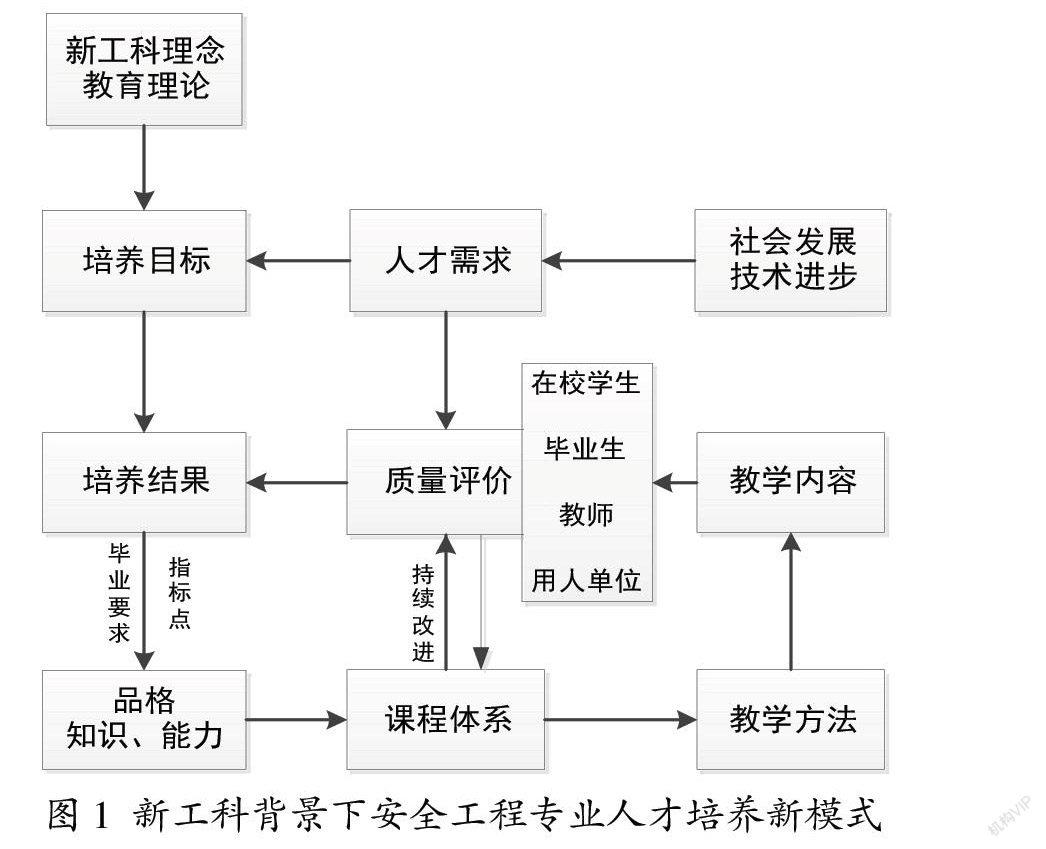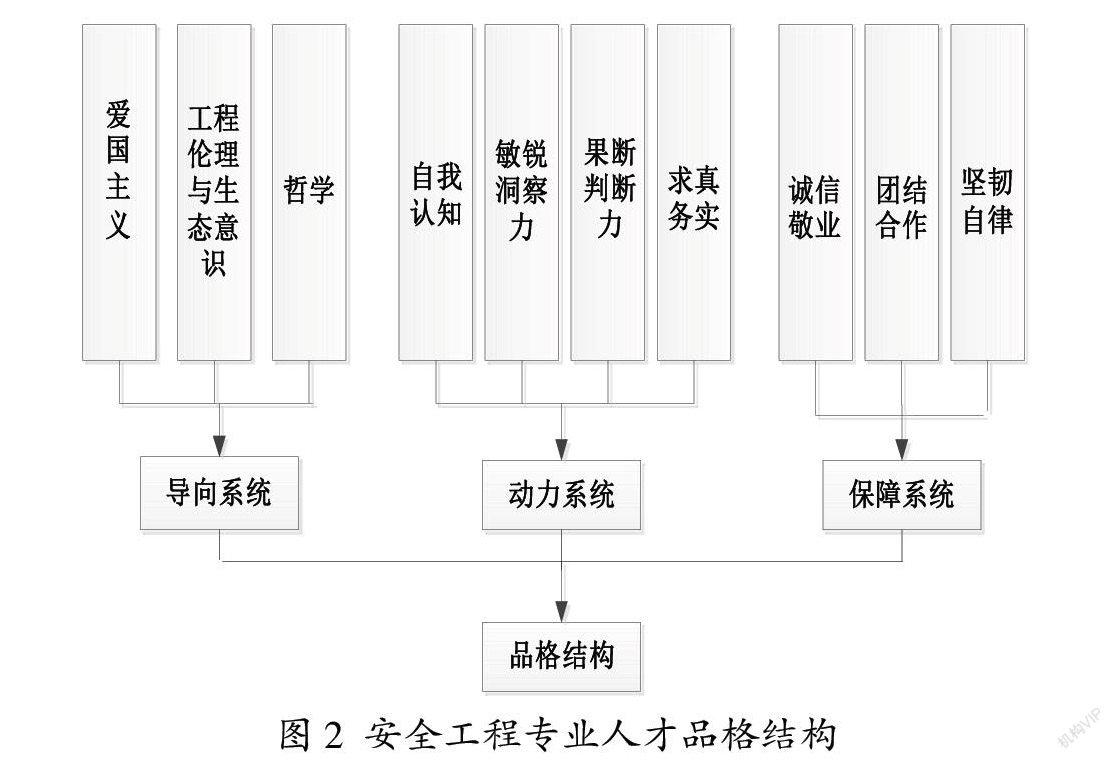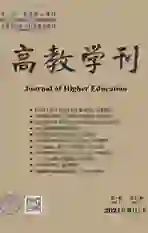新工科背景下安全工程专业人才培养模式及质量评价
2021-10-14刘晋王力
刘晋 王力



摘 要:为了主动应对科技革命和产业变革,加快新技术、新产业、新动态和新模式为特征的新经济,实现“中国制造2025”等一系列国家战略,保障新工科背景下安全工程专业人才培养质量,分析目前安全工程专业人才培养现状,提出“品格+知识+能力”的人才素质结构,多学科交叉融合的培养方式,构建一种“科学-技术-工程”相辅相成的综合模式。并采用层次分析法确定人才质量评价指标体系。结果表明:安全工程人才培养核心应从“工程教育”回归到“人”的本质,从品格、知识、能力三方面提高人才综合素质;增强信息技术与安全工程专业课程的融合度,提高学生在安全生产领域内信息技术的应用能力;应着重培养学生的工程应用、学习能力、跨学科应用、知识掌握这四种能力。
关键词:新工科;安全工程;人才培养模式;质量评价
中图分类号:C961 文献标志码:A 文章编号:2096-000X(2021)27-0153-05
Abstract: In order to actively respond to the scientific and technological revolution and industrial transformation, accelerate the new economy featuring new technologies, new industries, new trends and new models, realize a series of national strategies such as "Made in China 2025", and guarantee the training quality of safety engineering talents under the background of new engineering, this paper analyzes the current situation of safety engineering talents training, puts forward the talent quality structure of "character + knowledge + ability", the training mode of interdisciplinary integration, and constructs a comprehensive mode of "science + technology + engineering". This study uses AHP to determine the talent quality evaluation index system. The results show that the core of safety engineering talents training should return to the essence of "human" from "engineering education", improve the comprehensive quality of talents from three aspects of character, knowledge and ability, enhance the integration of information technology and safety engineering courses, improve the application ability of information technology in the field of safety production. We should focus on the cultivation of engineering application, learning ability and cross learning ability of students to master the four abilities of subject application and knowledge.
Keywords: new engineering; safety engineering; personnel training mode; quality evaluation
近年来,国内外安全形势日益严重,安全工程人才的需求与日俱增,社会对安全人才综合素质提出更高要求,且人工智能、“互联网+”等信息技术的迅猛发展,在安全生产行业得到广泛运用,而传统的安全人才信息技术知识储备不足、融合性差,应用能力不强,这与新时代安全工程人才需要具备信息技术的能力相违背,因此迫切需求推动工程人才培养的改革创新[1-2],在此背景下,教育部于2017年提出新工科战略,要求各专业建立新工科人才培养的新理念、新目标、新模式,培养能够适应未来、适应工程发展需求的懂“科学-技术-工程”的综合型人才[3-6];2018年,教育部办公厅发布《教育部办公厅关于公布首批“新工科”研究与实践项目的通知》《高等学校人工智能创新行动计划》等通知,积极推进新工科建设;2020年教育部在高等学校培育建设了一批未来技术学院,推动高校加快体制机制创新。目前新工科政策不断优化更新,安全技术飞速发展,急需大量能夠适应现代经济发展需要、符合新工科建设需求,适应新技术、新业态、新模式、新产业需求的实践能力强的创新型安全工程专业人才。
新工科的最终落脚点在于人才培养质量,而质量评价是其中最重要的一环。但是,安全工程人才质量评价指标体系的建立,因高校依托行业不同,建立的评价指标各不相同,用以借鉴评价的可操作性不强,对安全工程人才培养的指导性不强。为了能查找出专业人才培养的薄弱环节,从而持续改进为人才培养改革和发展提供建议和帮助,本文结合安全工程专业人才培养现状,提出“品格+知识+能力”的人才素质结构,多学科交叉融合的培养方式,构建一种“科学-技术-工程”相辅相成的综合模式。并采用层次分析法确定人才质量评价指标体系,以期为安全工程专业建设与人才培养提供指导作用。
